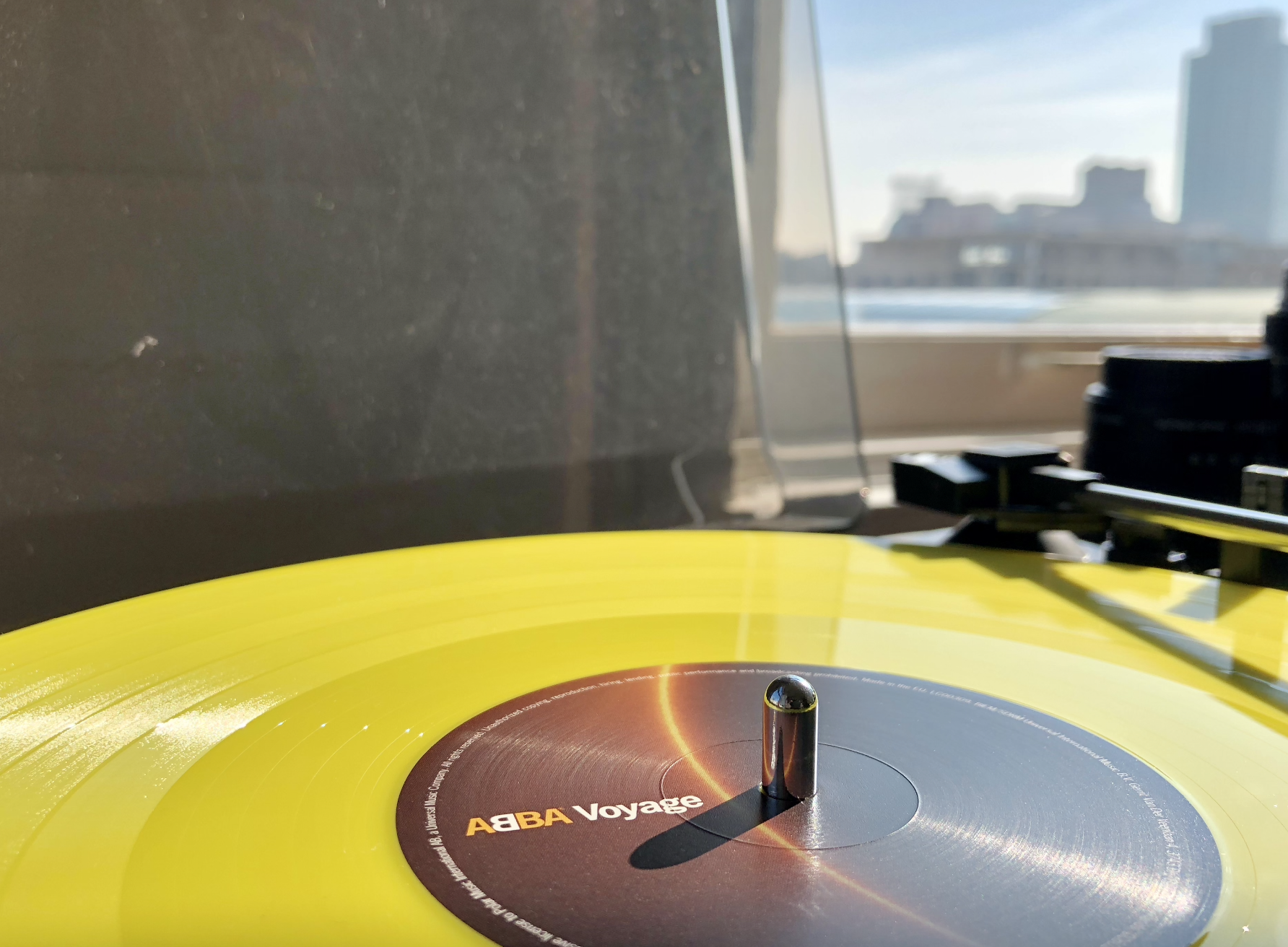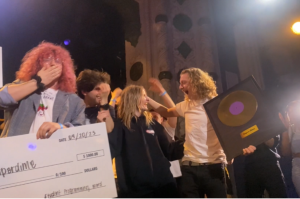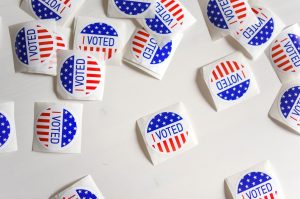We need more ABBA in our world — we desperately need it. In such turbulent times, there is something about reaching into the past that is calming and makes us happy. In times of uncertainty about a prolonged pandemic and deep social and political divisions, ABBA offers a safe space with their its classic music from 40 years ago as well as their new album “Voyage.”
The four letters stand, of course, for the four first names of the Swedish mega band members. But they stand for so much more than just Agnetha, Björn, Benny, and Anni-Frid. For me, these letters stand for family, memories of vacations with my parents and my brother. They stand for this one red compilation album with all the hits we still have at home sitting on the stereo system and they represent easier times back then. And this comes from a 27-year-old who wasn’t even born when ABBA released their last album in November 1981.
I am far from being the only young person appreciating this classic pop music. “ABBA is a pretty good seller, one of the best sellers, here with younger people. It’s just the appeal of the classics. Pretty much anything you like today has been influenced by something in the past and it’s interesting to go back and listen to that,” said Charlie Carey, an employee at Reckless Records on Madison Street in Chicago.
Alex Jech, a 22-year-old student at Columbia College Chicago, only knew the song “Dancing Queen” until he recently discovered more from the band. “They have a certain timelessness, and they can still do music because they have this kind of ‘show tunes-esque’ aspect to their music that’s almost goofy,” he said. “But I think they’re not afraid to be goofy and that allows them to play with more stuff and it creates more melodramatic and more universal message.”
This universal message is what younger people are looking for— some solid ground to stand on, at a time when there is so much to worry about. In a recent study, researcher Kelly Jakubowski from Durham University and her colleagues found “a general increase in how much people liked songs from the late 1970s to early 1980s, even in participants who weren’t yet born during that time period.” The experts concluded that there seem to be “some intergenerational shared preferences” and pop music from this time is valued across the ages.
Nathan Bakkum, an associate professor in the Music Department and senior associate provost at Columbia College Chicago, has the same point of view: “Maybe it’s a generational connection. I love a lot of music that I heard from my parents.” Also, “there’s a kind of ubiquity to the music that means that it’s around,” Bakkum said.
“There are amazing melodies, there’s a good mix of repetition and variation. […] That’s a characteristic of a lot of Top 40 music that we hear today that learned some of those formulas from this time and from this era. There’s a familiarity that comes from this sort of trajectory of influence. You can hear the echo in what we’re hearing today. That makes all this music important, familiar and catchy,” Bakkum added.
These songs can do two things – first, they can calm us and take us back as to better times in life.
“A song like ‘Dancing Queen’ can be cathartic in a time like now… on a lot of different levels,” Bakkum explained. “Not just about sort of economic anxiety or a wish for us to be together at a time where we all must wear masks. But also, in a place where particular identities are under siege. Where the culture wars around what America means are so much front and center. The idea of a safe space that can be created by a particular culture that surrounds music is powerful.”
Second, these songs can help to create new memories and narratives. Bakkum described it as a reusing of a song: “There may be, for some folks, an experience in their youth that was something very different. Being able to strategically reuse a song like that in creating one’s own identity, one’s own culture at whatever age, can be really, really powerful, too. Saying ‘this is who I am, this is what I identify with, these are my values,’ and it can either be a reminiscence or it can be a denial of a memory.”
This is exactly the magic of ABBA. And they came back, right when the world needed them the most.


















Be First to Comment